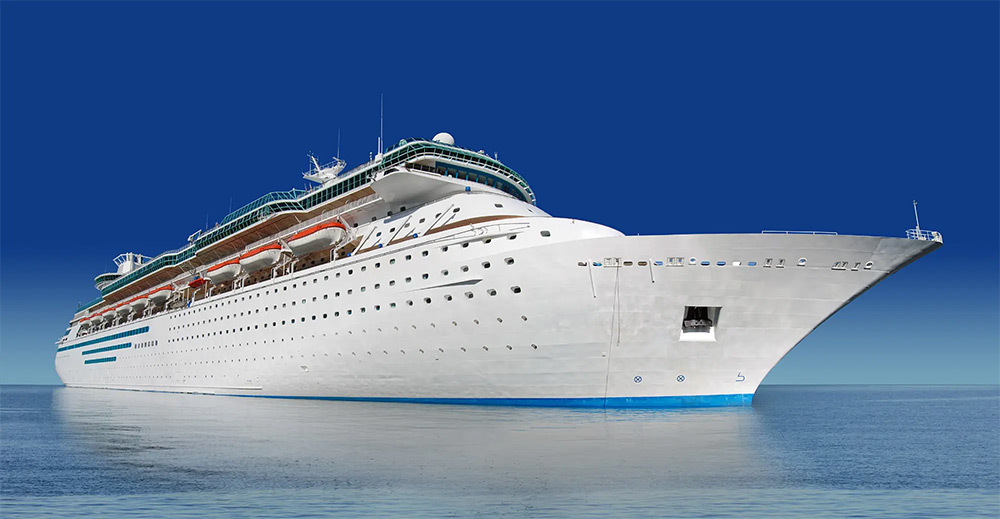The Advantages of Stainless Steel Propellers in Marine Transportation
Release Time:
Jun 11,2025
Stainless steel propellers are a crucial component in the marine transportation industry, offering numerous advantages over traditional materials. One of the most significant benefits is their durability. Stainless steel is inherently resistant to corrosion, which makes it ideal for use in marine environments where exposure to seawater can lead to degradation over time. This resistance not only ex
Stainless steel propellers are a crucial component in the marine transportation industry, offering numerous advantages over traditional materials. One of the most significant benefits is their durability. Stainless steel is inherently resistant to corrosion, which makes it ideal for use in marine environments where exposure to seawater can lead to degradation over time. This resistance not only extends the lifespan of the propeller but also reduces the need for frequent replacements, which can be both costly and time-consuming.
In addition to their durability, stainless steel propellers are known for their strength. Unlike aluminum or plastic propellers, stainless steel can withstand greater stress and pressure, making it suitable for high-performance vessels. The enhanced strength of stainless steel allows for thinner and more efficient designs, which can lead to improved hydrodynamic properties. This means that vessels equipped with stainless steel propellers can achieve better thrust and overall performance, which is particularly important for commercial shipping and recreational boating.
Another advantage of stainless steel propellers is their ability to maintain their shape and performance characteristics over time. While some materials may warp or bend due to wear, stainless steel retains its form, ensuring optimal efficiency and propulsion. This characteristic is particularly beneficial for vessels that rely on consistent performance in demanding conditions, such as in rough seas or heavy loads.
Furthermore, stainless steel propellers are easier to maintain. Although they may require occasional polishing to keep their surface smooth and free from marine growth, they do not suffer from the same level of fouling as other materials. This ease of maintenance allows boat operators to spend less time and resources on upkeep, enhancing the overall functionality of their vessels.
When considering the environmental impact, stainless steel propellers are a more sustainable choice. Their longevity means fewer materials are needed for replacements, reducing waste in the long run. Additionally, the efficiency of stainless steel in terms of fuel consumption helps to lower emissions, which is a critical factor for environmentally conscious operators.
In conclusion, stainless steel propellers represent a superior choice for marine transportation due to their durability, strength, efficiency, and ease of maintenance. Their ability to perform reliably in various conditions and resist corrosion makes them an essential component for both commercial and recreational vessels, enhancing overall performance and sustainability in the marine industry. As the demand for efficient and reliable marine transportation continues to grow, investing in high-quality stainless steel propellers is a decision that brings long-term benefits.
In addition to their durability, stainless steel propellers are known for their strength. Unlike aluminum or plastic propellers, stainless steel can withstand greater stress and pressure, making it suitable for high-performance vessels. The enhanced strength of stainless steel allows for thinner and more efficient designs, which can lead to improved hydrodynamic properties. This means that vessels equipped with stainless steel propellers can achieve better thrust and overall performance, which is particularly important for commercial shipping and recreational boating.
Another advantage of stainless steel propellers is their ability to maintain their shape and performance characteristics over time. While some materials may warp or bend due to wear, stainless steel retains its form, ensuring optimal efficiency and propulsion. This characteristic is particularly beneficial for vessels that rely on consistent performance in demanding conditions, such as in rough seas or heavy loads.
Furthermore, stainless steel propellers are easier to maintain. Although they may require occasional polishing to keep their surface smooth and free from marine growth, they do not suffer from the same level of fouling as other materials. This ease of maintenance allows boat operators to spend less time and resources on upkeep, enhancing the overall functionality of their vessels.
When considering the environmental impact, stainless steel propellers are a more sustainable choice. Their longevity means fewer materials are needed for replacements, reducing waste in the long run. Additionally, the efficiency of stainless steel in terms of fuel consumption helps to lower emissions, which is a critical factor for environmentally conscious operators.
In conclusion, stainless steel propellers represent a superior choice for marine transportation due to their durability, strength, efficiency, and ease of maintenance. Their ability to perform reliably in various conditions and resist corrosion makes them an essential component for both commercial and recreational vessels, enhancing overall performance and sustainability in the marine industry. As the demand for efficient and reliable marine transportation continues to grow, investing in high-quality stainless steel propellers is a decision that brings long-term benefits.
Keywords:
More information



